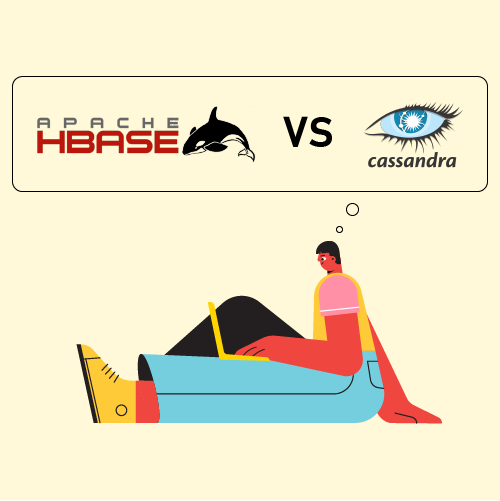- What is Kotlin Programming Language?
- What is Scala Programming Language?
- Kotlin versus Scala: A Detailed Comparison of Java Alternatives
- 1. Market Popularity
- 2. Ease of Learning
- 3. Functional Programming
- 4. Pattern Matching
- 5. App Performance
- 6. Inline
- 7. Null Safety Management Efficiency
- 8. Operator Overloading
- 9. Java Interoperability
- 10. Libraries and Frameworks
- 11. Documentation
- 12. Use Cases
- 13. Community Support
- Pros and Cons of Kotlin and Scala
- Benefits of Kotlin Programming Language
- Limitations of Kotlin Language
- Scala Advantages
- Scala Disadvantages
- What Is The Best JVM Language?
- Is Kotlin Better Than Scala?
“The folly of one man is the fortune of another”
As quoted by Francis Bacon, meaning, ‘One man’s misery or misfortune is the fortune of another.’
This saying has become true for the JVM world. With the fall of Java – the programming language that entered the market in 1995 and changed the complete story, various other languages are gaining huge momentum. Developers have not only started using those JVM programming languages, but have also proposed them as the right Java’s alternative for app development.

Three of such programming languages that are enjoying limelight in the market are Kotlin, Clojure, and Scala.
While we will talk about Clojure some other day, let’s focus on the ‘Scala vs Kotlin comparison’ battle today.
Here, in this article, you will get to know the scenario of Kotlin vs Scala 2021 to help you make a smart and profitable decision of switching from Java to another JVM language on your own.
TABLE OF CONTENT
- What is Kotlin Programming Language?
- What is Scala Programming Language
- Kotlin versus Scala: A Detailed Comparison of Java Alternatives
- Pros and Cons of Kotlin and Scala
- What Is The Best JVM Language?
- Is Kotlin Better Than Scala?
So, Let’s dive into the Kotlin world first.
What is Kotlin Programming Language?
Kotlin is an open-source, cross-platform, statically-typed programming language developed by JetBrains in 2011. It was recognized as an official Android programming language by Google back in 2019 and has reached the latest version, Kotlin 1.4.
[As we have mentioned about cross-platform nature of Kotlin above, you can learn about it in detail here – Kotlin Vs Flutter: Who Will Rule the Cross-platform App Market? ]
What is Scala Programming Language?
Scala is an abbreviation of “Scalable”: a language i.e. scalable as per the user requirement.
Scala is a modern compiler based programming language that is designed to express normal patterns of programming in a brief, sophisticated, and type-safe way. It flawlessly supports both the features of object-oriented and functional languages.
With this covered, let’s gear up for the detailed battle of Supremacy between Kotlin and Scala and know how mobile app development companies are benefitting from these two languages.
Kotlin versus Scala: A Detailed Comparison of Java Alternatives
1. Market Popularity
Kotlin, with support of Google, has achieved success in making its presence dominant in the market much faster than expected. As per Google trends, there’s a surge in searches related to Kotlin when compared to Scala. This gives a clear indication that Kotlin is more in trend than Scala.

But, if you focus entirely on the job posting platform, you will come across the fact that Kotlin is behind Scala with significant numbers.

Likewise, if you check for the developers’ salary for distinguishing Kotlin or Scala, you will realize that the values are much uniform.

This, as a whole, concludes that both the languages are far popular and liked by the developer community in one way or the other.
2. Ease of Learning
Scala is a powerful language with highly-advantageous features and flexible syntax. So, it is quite difficult for newbies to get their hands on this JVM programming language.
But, it is not in the case of Kotlin.
As reported by Java developers in various organizations, one can easily understand basic Kotlin syntax in just a few hours and start coding within 1-3 days. Also, Google introduced free Kotlin courses for Android developers, which again streamlines their journey in the Kotlin market.
So, the winner of Kotlin and Scala differences war is the former, if the entire focus is on ‘learning curve’.
3. Functional Programming
It’s true that both languages are known for their functional programming paradigm. But, when it comes to looking into Scala vs Kotlin comparison in terms of functional programming, the former wins.
Scala is more swayed by functional programming languages like Haskell than Kotlin. It encourages the use of functional coding along with some additional features like pattern matching and currying. Besides, the attempt of possible functional programming is more considerable in the Scala environment.
4. Pattern Matching
As already unveiled above, Scala offers better opportunities for pattern matching than Kotlin. Its match statement enables developers to match any type of data, including its own. Also, it shows full support for higher-end and macros types.
A result of which is that Scala is termed as “Java’s switch on steroids” and is considered as a good fit for Big Data processing tasks.
5. App Performance
Though app performance depends highly on the nature of the app, let’s consider an Android application for comparison of JVM languages.
Android development with Scala is a good option for employing highly scalable Android app development software services. Whereas, a Kotlin-based application will be easy to code and debug. As a consequence between Kotlin vs Scala performance, app performance will be higher in the case of Kotlin when compared to the other JVM language.
6. Inline
In the case of Scala, you are required to request the compiler to inline a method by annotating it with @inline. For example:-
@inline final def f1(x: Int) = x
Here, the compiler has the choice to see if the function is actually inlined or not.
But, in the case of Kotlin, the compiler will automatically consider functions with ‘inline’ keyword as inline. It is the developers’ responsibility to be careful with manual inlining to prevent the risk of inlining duplicates. Something that makes developers favour Scala over Kotlin for using inlines.
7. Null Safety Management Efficiency
One of the prime reasons why developers are showing an interest in other JVM languages is that they offer a better facility to handle hate-bound NPEs (Null Pointer Exceptions). So, it is again the main factor to consider while deciding the right Java alternative.
When comparing Kotlin with Scala, the latter’s approach is quite incompetent. One has to introduce null values with the option in Scala programming, which further adds to code complexity.
So, clearly, the winner of the battle here is Kotlin.
8. Operator Overloading
Though Java does not support Operator overloading, both Scala and Kotlin come loaded with this functionality. So, it is again important to consider this factor to know whether to choose Scala or Kotlin for JVM-based development needs.
Kotlin focuses on making a balance between power and readability. It empowers developers to overload the basic operators, but refrain them from defining new ones. This makes it easier for one to understand Kotlin operators (even to novice developers), but reduces the flexibility.
Scala, in contrast to Kotlin, goes with quite a lenient approach to operator overloading. This makes it easier for developers to write more human-readable codes, and thus, makes it a good fit while creating internal domain-specific languages. But, at the same time, it can result in confusion if used incorrectly.
9. Java Interoperability
Though both Scala and Kotlin are interoperable with Java, Kotlin leads the show if you wish to maintain full compatibility with existing Java-based projects and technologies.
Kotlin is designed to be 100% interoperable with Java. So, you can easily call Kotlin code from Java and vice-versa effortlessly. Likewise, you can employ existing Java-based frameworks like Java Server Faces (JSF), and ‘Vert.x’ Kotlin framework while considering Kotlin for server-side development.
Whereas, when it comes to Scala use cases then, accessing Java classes in the development environment is easy. But, it is not possible to call Scala classes in the Java environment, especially when working with advanced features of Scala as they might lack Java equivalent.
10. Libraries and Frameworks
When talking about libraries and frameworks, both JVM languages are doing wonders in the market.
On one hand, Scala – taking advantage of its long span in the market – facilitates developers with a wide range of libraries and scala frameworks to work effortlessly with APIs and applications. Scala libraries include Cats, Slick, Shapeless, Akka, and Play Framework.
While, on the other side, Kotlin has also come up with a lot of offerings in terms of community libraries & frameworks. A few of the Kotlin libraries are Ktor, Exposed, and Arrow.
11. Documentation
When talking about Scala, its API documentation is simple, straightforward, and well-structured. It offers search functionality and an option to restrict the number of displayed elements with a filter. However, sometimes you might find it tough to search for pages on a particular topic.

Whereas, using the Kotlin API documentation is a bit tiresome. There’s no search function or filter option. However, it comes with a reference which explains all the concepts in a detailed manner (with examples). This helps Kotlin remain in the competition to Scala in terms of documentation.

12. Use Cases
Though both Scala and Kotlin prove to be good alternatives to Java in the JVM world, they come with different unique use cases.
Besides Android development with Kotlin, web development and server-side development is also a few of the Kotlin use cases. Scala is a good fit for projects requiring a blend of OOPs and functional programming concepts, for Big Data-based solutions, or for operating with complex Machine learning patterns.
13. Community Support
Being in the market for the past 15 years, Scala has a bigger community than that of Kotlin. This makes it easier for app developers to find tutorials, solutions, and other resources related to Scala over Kotlin.
In fact, if you check in Q&A site Stack Overflow, you’ll find more than 4K questions related to Kotlin and 70K tagged with Scala.
So, when focusing on community support, Scala beats Kotlin in the JVM war.

The language offers developers with ample benefits as an answer to Is Kotlin better than Java. With kotlin pros and cons, you will understand the above points in a better way. A few of which are as follows:-
Pros and Cons of Kotlin and Scala
Benefits of Kotlin Programming Language
1. More Reliable
Unlike other conventional languages like Swift, Kotlin has undergone various Alpha and Beta stages before entering into the market. Because of this, the latest version of Kotlin is highly mature, compatible and reliable to operate with.
2. Higher Development Speed
Kotlin encourages developers to perform any functionality by writing a less number of code lines. This not only enhances productivity but also speeds up the app development process.
3. Fail-fast System
Another advantage of going with Kotlin language is that it provides a built-in fail-fast system which reduces the risk of errors in coding.
4. Easy to Maintain
The Kotlin benefits offer extensive support for various IDEs including Android Studio. This makes it possible for developers to build solutions on different platforms and maintain them timely.
Because of such advantages, Kotlin programming language has received support from various recognised brands and organizations are adopting android app development companies. A list of which is as follows:
Limitations of Kotlin Language
1. Less Kotlin Developer Experts Available
Despite the sky-high popularity of Kotlin, there are only a few programmers with expertise in Kotlin development in the market. This is the prime limitation of considering Kotlin for JVM based application development.
Now, before you find yourself inclined towards Kotlin language, let’s jump to Scala.
2. An Overview of Scala Programming Language
Designed by Martin Odersky back in 2004, Scala is an open-source language that facilitates a perfect blend of object-oriented and functional coding in a statically typed programming environment. The language was devised to address the cons of Java programming language in terms of general-purpose and thus, can be an ideal Java alternative.
Scala programming language, whose latest version is 2.13.1, is highly appreciated by various reputed brands, including:-
And the prime reason behind this is the following set of benefits it provides. Let’s look into scala pros and cons to understand it.
Scala Advantages
1. Statically Typed
Scala comes with a highly expressive typing system that demands application of statistical abstraction in a particularly consistent and secure manner. Primarily, the type system supports:
- General Classes
- Upper and Lower typing limit
- Clearly written self-references
- Polymorphic methods
- As a member of internal class and abstract type items
- Variable Annotations
2. Concise Coding
One of the prime reasons why Scala is gaining a huge momentum these days is because it is highly concise. The language, when compared to other programming languages like Java, requires less number of code lines to perform the same activity.
3. Highly Scalable
Another advantage of Scala-based development is that it is highly scalable. Developers can merge different paradigms and introduce a vast range of features into the development environment while working with this JVM language.
4. Typesafed Language
Scala emerges as a good resource in terms of type safety and this is another Scala advantage. Besides, it enables you to create your own data types on the top of primitive ones and write a DSL for your project.
5. Enhanced Quality
Since a minimum number of code lines are written in the Scala environment, it becomes easier for developers to deliver a bug-free experience, a.k.a, get better results from the Quality assurance process.
6. Multi-Platform Presence
Though Scala primarily targets JVM platforms, it can be a good option for creating software that runs on multiple platforms.
Scala Disadvantages
1. Difficult to Understand
Since Scala codes are an amalgamation of functional and object-oriented concepts, the information sometimes gets a bit hard to comprehend.
2. Slow Compilation Speed
Another disadvantage of Scala is that it takes a longer time to compile complex codes. This results in slow compilation speed when compared to what is observed in the case of Java or Kotlin.
3. Issues with Binary Compilation
It is not binary compatible with a few versions. For example, a code that is compiled with Scala 2.1 might not compile with Scala 2.11. This is yet another limitation of picking Scala language.
With this, you have gained all-inclusive information about the two JVM titans. Which implies you might be curious to hop over to the differences between Kotlin and Scala to see which one wins the JVM war.
But, wait.
Before we move on to the section where we compare Scala and Kotlin, let’s have a quick look at how Kotlin’s an improvement over Scala, and vice-versa.
What Is The Best JVM Language?
With the benefits of JVM, there is not just one but many best JVM languages. Some popular ones are:
- Scala
- Kotin
- Clojure
- Ceylon
- Fantom
Is Kotlin Better Than Scala?
As noted from the aforementioned factors, Kotlin and Scala are somewhat in a tug of war. While Kotlin is an improvement over Scala in some ways, it lags behind the latter in others. This implies, there’s no end to the ‘Kotlin versus Scala’ debate.
Now, in such a scenario, the optimal way to decide what to choose between Kotlin & Scala instead of Java is to consult with a trusted app development agency. So, connect with experienced android app developers in USA, brainstorm on your app idea, and determine what’s an ideal choice for you. And ultimately, start coding using that JVM programming language or hire a skilled android app development company in USA.


- In just 2 mins you will get a response
- Your idea is 100% protected by our Non Disclosure Agreement.

Which Mobile Platform Should Startups Choose in 2021: Android Or iOS?
Back in 2008, the iOS App Store was launched with 500 apps. Today that number has skyrocketed to 1.85 million apps that are available for users to download. Android users have a bigger app universe to browse from that consists of over 2.56 million apps available in the Google Play Store. It is safe to…

HBase vs Cassandra: Which is Better of the Two NoSQL Databases?
Selecting the best database management system is the key to ensure effective, streamlined app development process and a successful end outcome. However, choosing an ideal system for a project is not very easy for there are always a number of details to be considered at every turn. Especially when it impacts the performance of your…

Go vs Rust: Which is Better and Why?
If you had to make a list of top programming languages that appeared in the industry in the past decade, the two names that would emerge would be Go and Rust. And, if you had to sit down and think of the programming languages which were best aligned with the motive to develop secure, microservice…
















